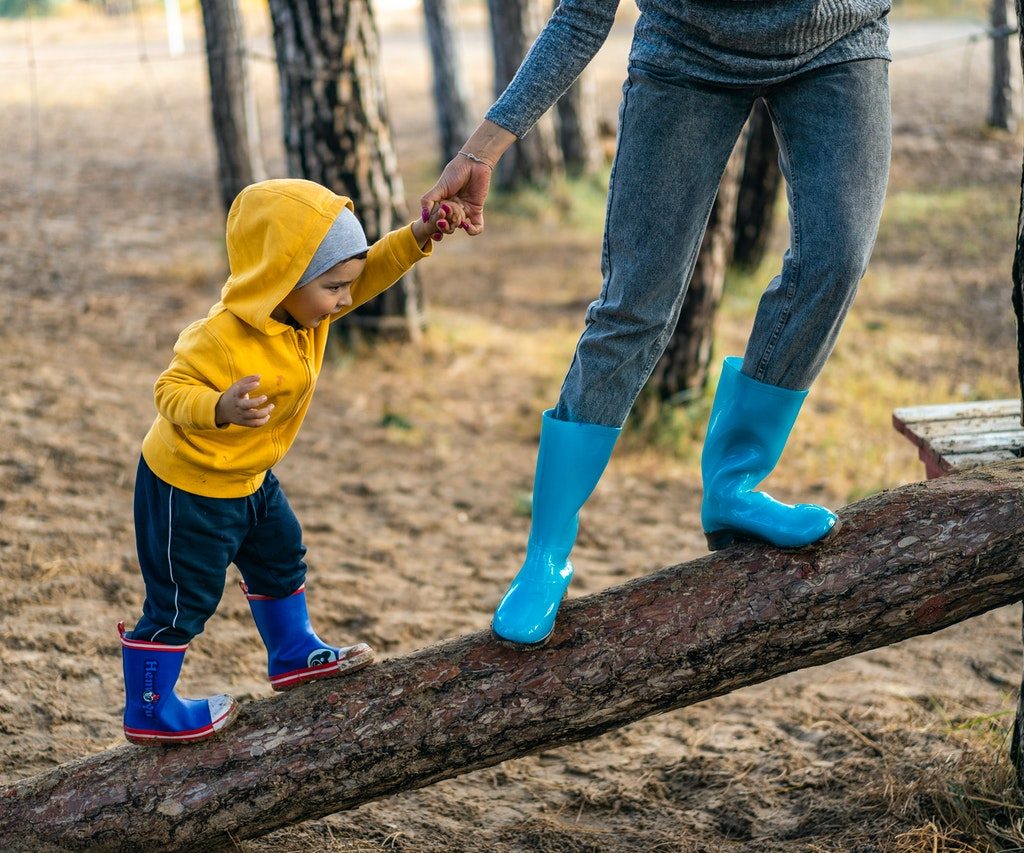Most parents know about the importance of playing for their children to develop essential life skills. But did you know about the importance of playing for grown-ups, too?
When you think of the word “play”, you probably imagine a group of children running around, chasing a colorful ball as they laugh and cheer. But playing is much more than that, and it’s not restricted to a certain age group. Playing can be defined simply as engaging in activity for pure enjoyment and recreation.
Playing is for everyone, regardless of age (or profession)
The best thing about playing, besides the fact that it’s something you enjoy, is that while you’re doing it, it’s benefiting your overall wellbeing and impacting your health. It can fuel your creativity, emotional wellbeing and ability to problem solve.
The Importance Of Adult Play
Playing with your romantic partner, friends, co-workers, pets, and children is a sure (and fun) way to fuel your imagination, creativity, problem-solving abilities, and emotional well-being. Adult play is a time to forget about work and commitments, and to be social in an unstructured, creative way.
Playing could be simply goofing off with friends, sharing jokes with a coworker, throwing a frisbee on the beach, dressing up on Halloween with your kids, building a snowman in the yard, playing fetch with a dog, acting out charades at a party, or going for a bike ride with your spouse with no destination in mind. There doesn’t need to be any point to the activity beyond having fun and enjoying yourself. By giving yourself permission to playing with the joyful abandon of childhood, you can reap oodles of health benefits throughout life.
The Benefits Of Playing
While playing is crucial for a child’s development, it is also beneficial for people of all ages. Playing can add joy to life, relieve stress, supercharge learning, and connect you to others and the world around you. Playing can also make work more productive and pleasurable.
You can play on your own or with a pet, but for greater benefits, playing should involve at least one other person, away from the sensory overload of electronic gadgets.
Playing Helps
Relieve stress. Playing is fun and can trigger the release of endorphins, the body’s natural feel-good chemicals. Endorphins promote an overall sense of well-being and can even temporarily relieve pain.
Improve brain function. Playing chess, completing puzzles, or pursuing other fun activities that challenge the brain can help prevent memory problems and improve brain function. The social interaction of playing with family and friends can also help ward off stress and depression.
Stimulate the mind and boost creativity. Young children often learn best when they are playing—a principle that applies to adults, as well. You’ll learn a new task better when it’s fun and you’re in a relaxed and playful mood. Playing can also stimulate your imagination, helping you adapt and solve problems.
Improve relationships and your connection to others. Sharing laughter and fun can foster empathy, compassion, trust, and intimacy with others. Playing doesn’t have to include a specific activity; it can also be a state of mind. Developing a playful nature can help you loosen up in stressful situations, break the ice with strangers, make new friends, and form new business relationships.
Keep you feeling young and energetic. In the words of George Bernard Shaw, “We don’t stop playing because we grow old; we grow old because we stop playing.” Playing can boost your energy and vitality and even improve your resistance to disease, helping you function at your best.
Playing and Relationships
Playing is one of the most effective tools for keeping relationships fresh and exciting. Playing together brings joy, vitality, and resilience to relationships. Playing can also heal resentments, disagreements, and hurts. Through regular playing, we learn to trust one another and feel safe.
Trust enables us to work together, open ourselves to intimacy, and try new things. By making a conscious effort to incorporate more humor and play into your daily interactions, you can improve the quality of your love relationships—as well as your connections with co-workers, family members, and friends.
Playing helps develop and improve social skills. Social skills are learned as part of the give and take of playing. During childhood playing, kids learn about verbal communication, body language, boundaries, cooperation, and teamwork. As adults, you continue to refine these skills through playing and playful communication.
Playing teaches cooperation with others. Playing is a powerful catalyst for positive socialization. Through play, children learn how to “playing nicely” with others—to work together, follow mutually agreed upon rules, and socialize in groups. As adults, you can continue to use play to break down barriers and improve your relationships with others.
Playing can heal emotional wounds. As adults, when you playing together, you are engaging in exactly the same patterns of behavior that positively shape the brains of children. These same playful behaviors that predict emotional health in children can also lead to positive changes in adults. If an emotionally insecure individual plays with a secure partner, for example, it can help replace negative beliefs and behaviors with positive assumptions and actions.

you can read about play therapy.
Playing at Work
Many dot-com companies have long recognized the link between productivity and a fun work environment. Some encourage playing and creativity by offering art or yoga classes, throwing regular parties, providing games such as Foosball or ping pong, or encouraging recess-like breaks during the workday for employees to play and let off steam. These companies know that more play at work results in more productivity, higher job satisfaction, greater workplace morale, and a decrease in employees skipping work and staff turnover.
Using playing to boost productivity and innovation
Success at work doesn’t depend on the amount of time you work; it depends upon the quality of your work. And the quality of your work is highly dependent on your well-being.
Playing at work:
- keeps you functional when under stress
- refreshes your mind and body
- encourages teamwork
- increases energy and prevents burnout
- triggers creativity and innovation
- helps you see problems in new ways
Playing With Your Children
Rolling on the floor with your baby or getting down on your knees to play with a young child is vitally important—both to your child’s development and to your own health.
As well as aiding your child’s development, playing can also bring you closer together and strengthen the parent-child bond that will last a lifetime.
How to Play With Your Child
While children need time to play alone and with other children, playing with their parents is also important. Here are some helpful tips to encourage play:
Establish regular playtimes. It may be for twenty minutes before dinner every night or every Saturday morning, for example. Remember, this time spent playing together is benefiting both of you.
Give your child your undivided attention. Turn off the TV and your cell phone and make time to play with your child without distraction. Having your undivided attention makes your child feel special.
Get down to your child’s level. That may mean getting down on your knees or sitting on the floor. Match your child’s intensity during play—if your child is loud and energetic, be loud and energetic, too.
Creating opportunities to play
Host a regular game night with friends or family.
Arrange nights out with work colleagues: bowling, playing pool, miniature golf, or singing karaoke.
Schedule time in a park or at the beach to throw a Frisbee or fly a kite with friends.
Play with a pet. Puppies, especially, make very willing playmates. If you don’t have your own, borrow one from your local animal shelter.
Surround yourself with playful people. They’ll help loosen you up and are more likely to support your efforts to play and have fun.
Joke with strangers at a bus stop or in a checkout line. It’ll make the time pass quicker and you may even spark up new friendships.
Visit a magic store and learn some tricks. Or invest in art supplies, construction toys, or science kits and create something new.
Play with children. Goofing around with kids helps you experience the joy of play from their perspective. If you don’t have young children, arrange a play date with your grandkids, nephews, nieces, or other young relatives.
Remember That,
It’s never too late to develop your playful, humorous side. If you find yourself limiting your playfulness, it’s possible that you’re self-conscious and concerned about how you’ll look and sound to others when attempting to be lighthearted. Fearing rejection, embarrassment or ridicule when trying to be playful is understandable. Adults often worry that being playful will get them labeled as childish. But what is so wrong with that? Children are incredibly creative, inventive and are constantly learning. Wouldn’t you want to be childish if that is the definition? Remember that as a child, you were naturally playful; you didn’t worry about the reactions of other people. You can reclaim your inner child by setting aside regular, quality playtime. The more you play, joke, and laugh—the easier it becomes.
Dr. Leza (Reza) Kazemi-Mohammadi, is the Kazmo Brain Center Director and Licensed Professional Counselor Supervisor, and he uses group therapy techniques. Request an Appointment at Kazmo Brain Center located in Frisco, Texas for more information about group therapy.






